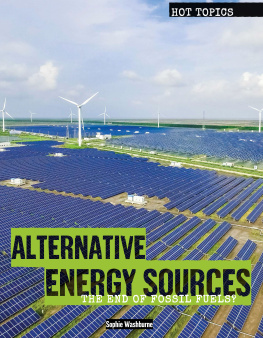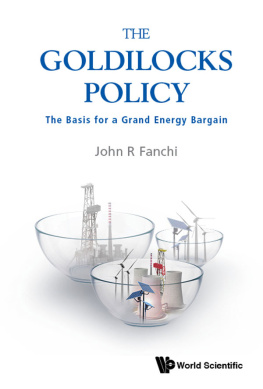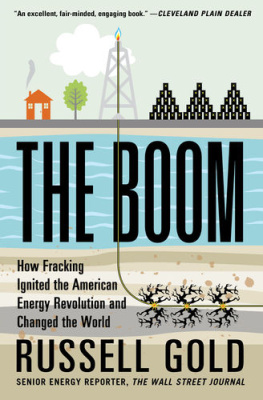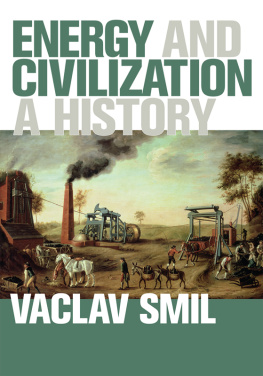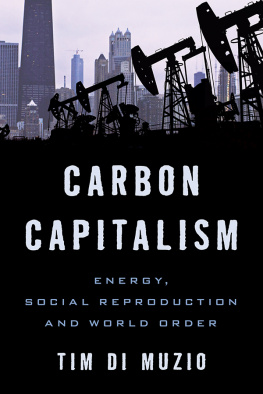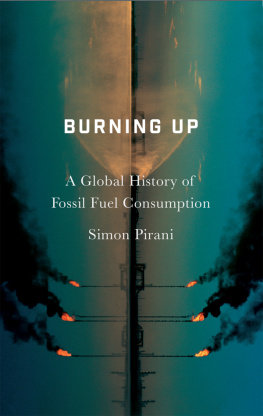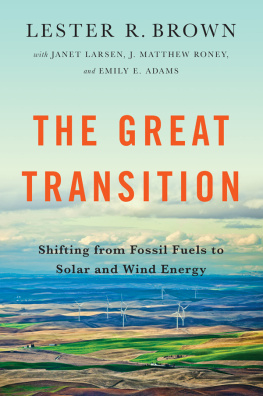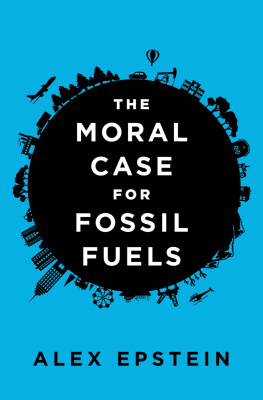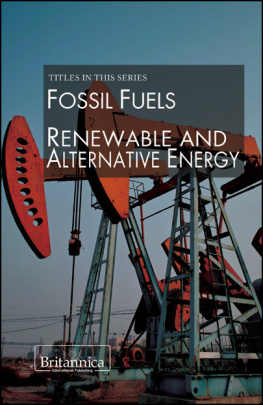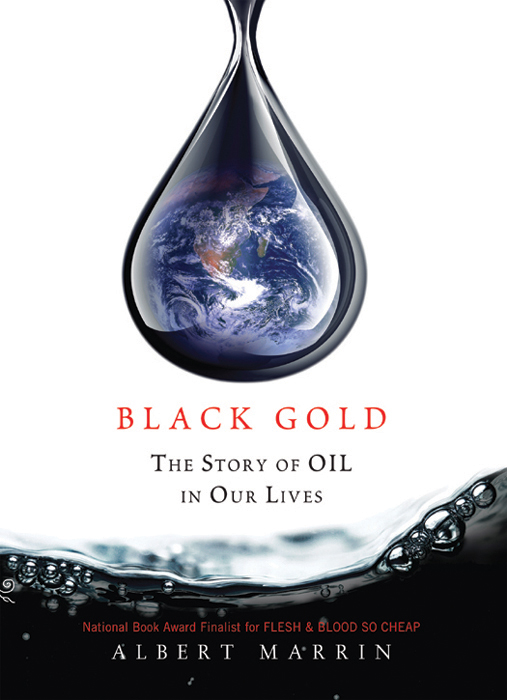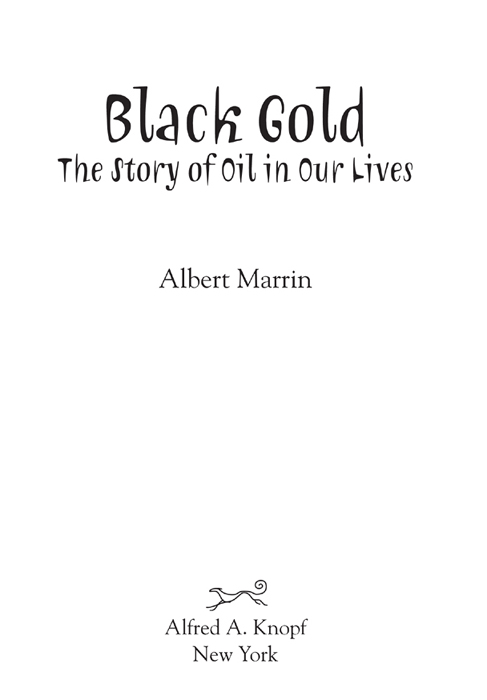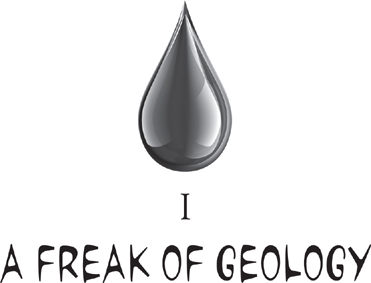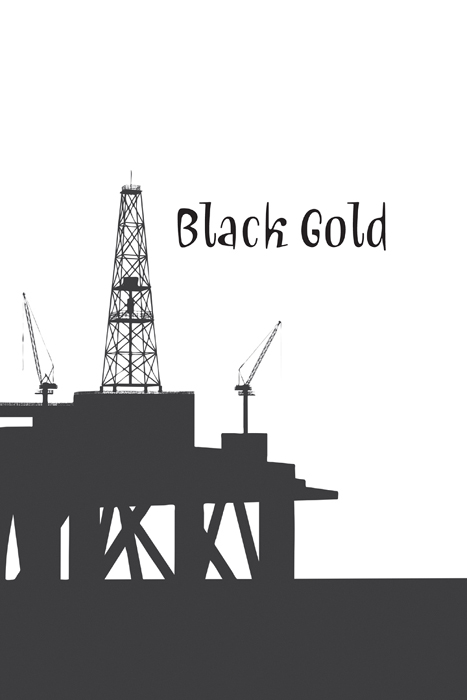
THIS IS A BORZOI BOOK PUBLISHED BY ALFRED A. KNOPF
Text copyright 2012 by Albert Marrin
Jacket Photoshop art copyright 2012 by Ericka ORourke
Jacket photograph of oil copyright 2012 by Shutterstock
Jacket photograph of Earth courtesy of NASA
All rights reserved. Published in the United States by Alfred A. Knopf, an imprint of Random House Childrens Books, a division of Random House, Inc., New York.
Knopf, Borzoi Books, and the colophon are registered trademarks of
Random House, Inc.
Visit us on the Web! randomhouse.com/teens
Educators and librarians, for a variety of teaching tools, visit us at
randomhouse.com/teachers
Library of Congress Cataloging-in-Publication Data
Marrin, Albert.
Black gold : the story of oil in our lives / Albert Marrin. 1st ed.
p. cm.
Includes bibliographical references, glossary, and index.
eISBN: 978-0-375-89686-6
1. PetroleumUnited StatesHistory. I. Title.
TN872.A5M39 2012
553.28dc23
2011013175
January 2012
Random House Childrens Books supports the First Amendment and celebrates the right to read.
v3.1
For todays young people, who will be confronted by the problem of black gold tomorrow.
There is nothing new in the world except the history
you do not know.
President Harry S. Truman
How Daddy Nearly Blew Himself Up
Ive had this book in me for most of my life. In 1943, when I was seven years old, we lived in New York City. World War II was raging, and my father headed an important construction project in another state. Usually, if we were lucky, he drove home on weekends. Though gasoline was rationed, and most people could only buy a few gallons a week, it was never a problem for Dad. He had a government priority, which meant that his work allowed him to get as much as he needed.
One night, he did not come at the time we expected. We were worried, until we heard the key turning in the lock. Dad was dirty, bruised, and shaken. Instead of the usual suitcase, he carried a clock, torn from the dashboard of the family car, with black wires dangling from it. A souvenir, he said, from the Old Lady, as he called our beloved car. She had skidded on an icy road, turned over, and slid down an embankment, landing on her roof. Luckily, the highway patrol arrived and pried him from the wreck. He had just enough time, before the explosion, to pull out the clock.
Explosion? my mother asked, stunned. Why an explosion?
Well, he explained, he had (unwisely) filled the backseat with cans of gasoline. He was taking it to another job in New York, just in case.
Why? Mother asked, hardly believing her ears.
Dont you know, he said, that gas is precious these days? This stuff runs the world.
I have never forgotten those words. For nothing has changed since that long-ago night. Today, as then, oil and its chief by-product, gasoline, still run the world. However, nothing lasts forever. The amount of oil is limited. As it becomes harder to find and more expensive to get out of the ground, it will grow yet more precious. Controlling its supply, and finding substitutes for it, will shape much of the social, political, and military history of the twenty-first century. That is what this book is about.
The stuff we pump into our gas tanks is a freak of geology, the product of a series of lucky breaks over millions of years.
Tim Appenzeller
Science Editor, National Geographic
Of Earth and Living Beings
Oil is not pretty. When it is taken from beneath the earths surface, it is called crude oil, or crude for short. Although crude can be green, red, straw-colored, or chocolate brown, it is usually black. Because it is so valuable, in the late 1800s people in the industry nicknamed it black gold. Since then, it has made fortunes for the lucky few and provided jobs for millions of ordinary folks.
Thick and slippery, crude oil has an evil smell, giving off vapors that make eyes watery and throats sore. Yet without it, life as we live it today would be impossible. Oil fuels the engines that move us and our goods from place to place. It heats our homes and powers the machines that make the everyday things we take for granted. Thousands of products, from drinking straws to plastic shopping bags, from plant fertilizer to computers and medical equipment, begin as crude oil. So do most school backpacks, knee guardseven the yellow rubber duck floating in your bathtub. Modern weapons such as tanks, aircraft, and ships are so much metallic junk without oil products to make them run.
Oil influences every aspect of modern life. It has helped shape the history, society, politics, and economy of every nation on Earth. Nations have fought wars for black gold and, sadly, probably will do so in the future. Yet few who rely on this vital substance know much about it. What, exactly, is oil? How was it formed? When? Where?
To understand oil, we must begin with a key rule of science: change alone is changeless. This may sound odd, but it is true. Nothing stays the same forever. Change governs everything in the universe, from distant galaxies, stars, and planets to tiny bacteria and giant whalesand us humans, too. Many changes in nature, such as the formation of mountains, happen too slowly for us to notice, unfolding over many lifetimes, even millions of years. When we do see rapid and sudden changes, they are usually bad for us. For example, the people of the Italian city of Pompeii had lived for generations in the shadow of Mount Vesuvius, a dormant, or sleeping, volcano. In the year AD 79, the sleeper awoke with an outburst of flame and fury. Within hours, it sent clouds of hot ash and gas to choke over 20,000 people, nearly all of Pompeiis residents.
Mountain ranges and volcanoes are features of the geology of the planet Earth. Geology is the science that studies the structure and history of the earth as recorded in the rocks. If you could slice deep into the earth, you would find that it is arranged in layers. Geologistsearth scientistsbelieve that the topmost layer of rock, or crust, is between four and forty miles thick. Earths crust is like an eggshell broken into ten enormous slabs and numerous smaller ones. These slabs, called plates, float on a layer of partially molten rock called the mantlethat is, the layer of rock between Earths crust and core.
Every continent and ocean floor rests atop one or more plates. Driven by heat currents from Earths core, plates are always in motion, always changing position. Although the plates move slowly, just a few inches a year, their movements have shaped Earths crustand still do. Moving plates push against, slide past, and grind under one another. When two plates scrunch together, they trigger earthquakes that create volcanoes and mountain ranges such as the Rockies, Andes, and Himalayas.


